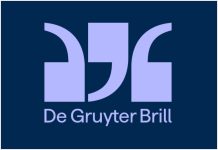
PLOS today announced that it has received a $1.5 million grant from the Robert Wood Johnson Foundation and a $1 million grant from the Gordon and Betty Moore Foundation to support our mission to drive Open Science forward with meaningful change in scholarly publishing. The funds enable PLOS to embark on an ambitious 18-month research and design project to explore how to tackle two barriers that exclude many researchers from meaningfully participating in Open Science: affordability and a lack of recognition for Open Science contributions in the research process. The goal of this project is to demonstrate outcomes for science that go ‘beyond the Article’ and build a business model that goes ‘beyond the Article Processing Charge (APC)’, highlighting that new solutions anchored in the principles of Open Science are feasible and can deliver tangible benefits for the entire research enterprise. PLOS seeks to be a catalyst in transforming publishing models and ensuring that science is open, recognized, and accessible to all.
“PLOS has long championed, and enabled Open Sciences contributions like Open Data, Open Code and Open Methods. Yet today’s scholarly ecosystem still places an exclusive emphasis on the article. PLOS is committed to designing a new model of research publication that enables recognition of all research outputs and contributions—creating a more comprehensive and equitable system for assessing scientific work,” said Veronique Kiermer, Chief Scientific Officer, PLOS. “The grants from the Robert Wood Johnson and the Gordon and Betty Moore Foundations will also enable PLOS to develop an equitable, non ‘APC’ business model for these new publishing capabilities, designed to foster a more inclusive, transparent, and collaborative system, while upholding the core principles of Open Science.”
“Open Science means research that’s more inclusive, equitable, and accessible,” said Nancy Barrand, Senior Advisor for Program Development, Robert Wood Johnson Foundation. “We’re excited to support this effort by PLOS to push the field in that direction by redesigning the publishing model for scientific papers to increase visibility, drive collaboration, and ultimately build a new system that’s more inclusive and participatory for early career researchers and diverse voices.”
“Since our original grant in 2002 to support the transition from pay-for-access research publication system to an open-access system, we have observed the transformation of PLOS as a publisher,” said Adam Jones, Ph.D., Science Program Officer, Gordon and Betty Moore Foundation. “With this latest grant and partnership with the Robert Wood Johnson Foundation we are excited to see an economic shift to a new approach that facilitates both access to knowledge and participation in knowledge creation by a wider range of researchers.”
The project will have three interconnected streams, which include:
Knowledge stack design
PLOS will develop a new, integrated solution that enhances the visibility and discoverability of non-article research outputs, including data, code, and methods. The goal is to ensure that these contributions are recognized alongside traditional articles without disrupting the current publishing workflow. By working with repositories and indexing services PLOS will ensure that these outputs are hosted in the best possible venues, making them easily accessible and reusable.
Upon completion, PLOS will have a fully tested, scalable solution design that can integrate with the existing digital infrastructure and publishing processes, helping researchers showcase their complete body of work.
Business models
PLOS will conduct a comprehensive economic analysis to explore how transitioning to a knowledge stack impacts funding flows across different global markets. Grounded in equity and price transparency, the goal is to develop a sustainable, non-APC business model for all research outputs in collaboration with funders, libraries, and scientific institutions.
This business model aims to be a catalyst for a global shift away from APCs, enabling greater participation in Open Science and paving the way toward long-term sustainability.
Building solutions with our communities
Driving meaningful change in Open Science requires collaboration across the research ecosystem. PLOS is committed to working closely with a diverse array of stakeholders—researchers, funders, institutional leaders, and librarians—to ensure that their needs and voices are central to the development and implementation of this initiative.
By engaging directly with communities, PLOS will ensure that the solutions that are built are inclusive, effective, and widely adopted.
More information can be found here
























